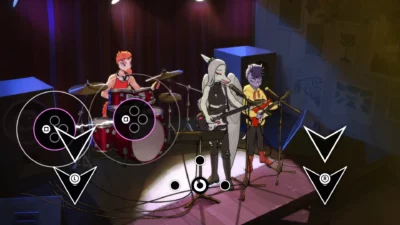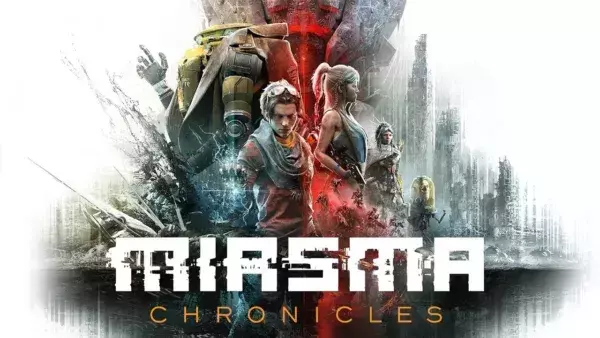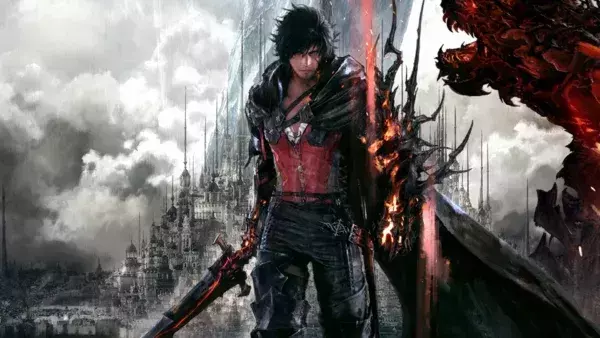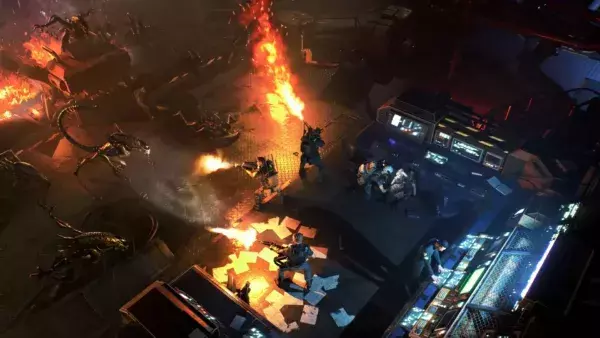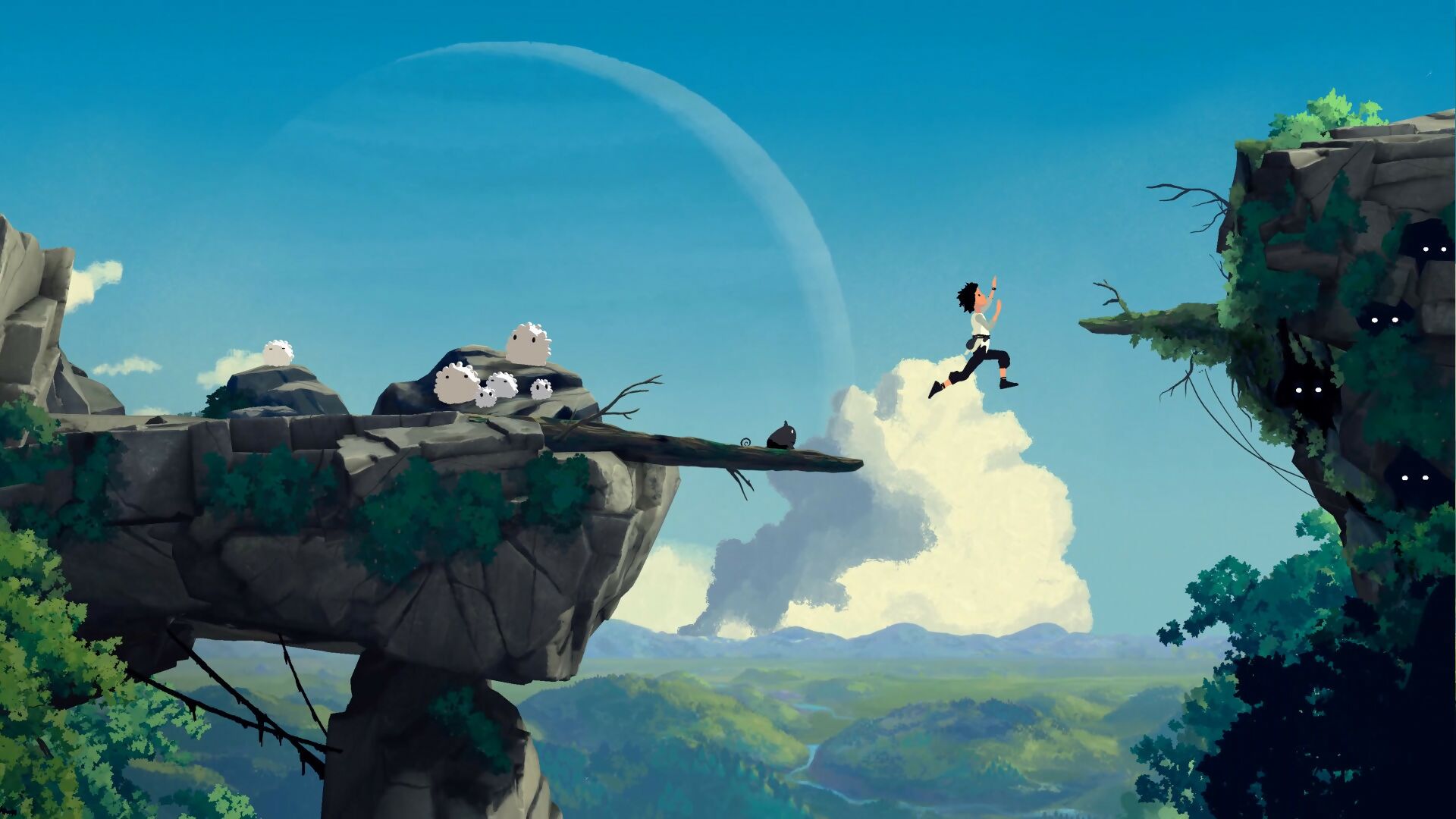
Planet of Lana masterfully weaves a heartfelt sci-fi fable through stunning visuals and beautiful music. Here’s our review of a superb cinematic platformer.
Takeshi Furukawa must have had some kind of sixth sense about Planet of Lana. All it took was a single image – that of a young girl dwarfed by an alien landscape – and the composer behind The Last Guardian was bewitched. Within a few weeks of seeing that picture in a tabloid newspaper, he was in touch with the indie developer behind Planet of Lana – Sweden’s Wishfully Studios – to offer his services.
Whatever Furukawa saw in that still image, his sixth sense was correct. Planet of Lana is a captivating side-scrolling platform-puzzler – one that draws on the lineage of other games of its type, but builds on its influences to weave a truly unforgettable sci-fi fable.
Set on a lush alien world that looks like an idealised, pre-industrial Earth, Planet of Lana opens with an invasion: young heroine Lana looks on helplessly as the population of her entire community – including her older sister – is snatched up by robotic flying machines. As the invaders make off in their shadowy vessels, Lana sets off on a rescue mission, a faithful sidekick – a sort of canine-rodent combo named Mui – seldom far behind.
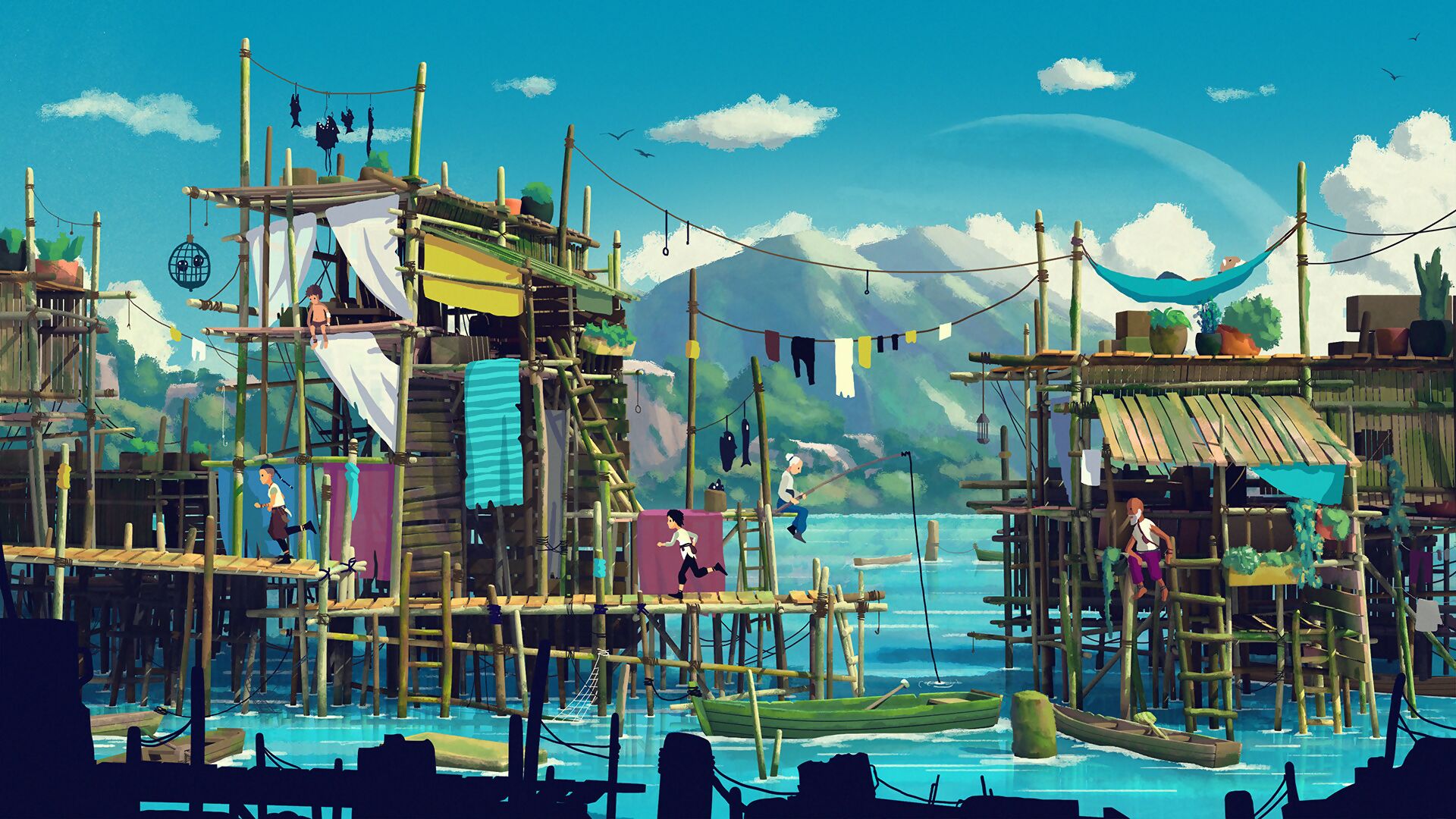
Planet of Lana’s opening sequence establishes an important ground rule: if you’re running to the left, it’s towards something pleasant. If you’re running to the right, it’s into dangerous territory. Credit: Wishfully Studios.
Lana and Mui’s partnership forms the game’s mechanical and emotional backbone, as the player can command the computer-controlled critter to, among other things, scurry up to out-of-reach places to chew through vines. Mui can also interact with other creatures and plant life dotted around the planet, and doing so will have pleasingly organic results – pulsating masses of roots will unfurl to form platforms, or gigantic creatures will freeze long enough to form a temporary bridge.
Lana, meanwhile, can use her strength to push heavy boxes or tear away bits of wood covering escape routes. The game soon makes the pair’s vulnerability clear, though, as they come up against one of several spider-like drones that patrol the planet. In these sequences, the pair can do little more than find places to hide or find routes around these deadly contraptions.
Much like the central characters in Ico or The Last Guardian, Lana and Mui’s fate is inseparably intertwined, and the relationship between the two is superbly illustrated both through the game’s mechanics and through brief, wordless sequences that deepen their individual personalities. An adorable moment where the game’s creators illustrate Mui’s aversion to water, for example, is masterfully done. Lana and Mui’s growing kinship soon becomes such that, in the moments where the two find themselves separated, the sense of loneliness is palpable.
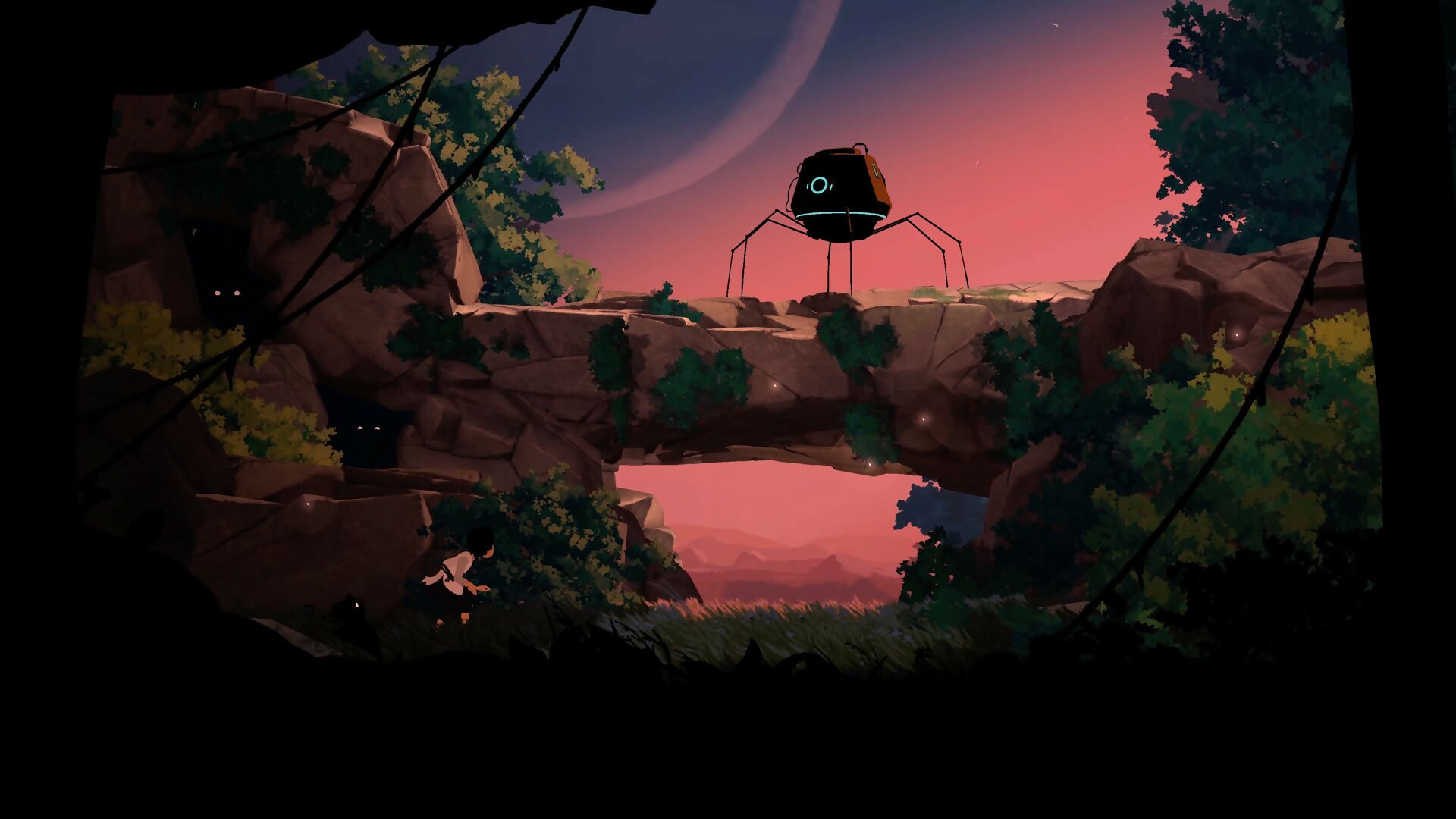
There are moments of stealth in Planet of Lana, but like the puzzles, they’re not so taxing or frequent that they get in the way of the storytelling. Credit: Wishfully Studios.
Planet of Lana makes conscious nods to bygone cinematic platformers like Another World, Flashback and Prince of Persia, but its rhythms are closer to more modern genre staples like Limbo or Inside. The latter’s flow of light puzzles and tense moments of stealth – avoiding enemy light cones is a recurring theme in cinematic platformers for some reason – is present here, albeit used in a very different context from those games’ nightmarish experiences.
It’s in the game’s more reflective moments, where the camera pulls back and Furukawa’s music swells, that the game’s artistry truly shines. A mix of 2D and 3D assets blend almost seamlessly to create Lana’s alien world, and it’s as lovely as anything you’ll see in a video game all year. Coupled with Furukawa’s score, which segues from Terminator-like drums to shimmering strings to a heart-melting closing ballad, Planet of Lana creates some truly unforgettable moments of reflection, suspense and outright exhilaration.
From a technical standpoint, Planet of Lana is a remarkably assured debut from Wishfully. Some almost flawless AI ensures that Mui genuinely feels like a living creature with its own personality and odd quirks, while the controls feel taut and refined to the point where they quickly feel invisible. The system allows you to instruct Mui to walk to a particular spot, stay put or run to your side quickly becomes second-nature. Had any of these elements misfired, the illusion that Planet of Lana whips up would have been broken. Instead, it’s easy to become immersed in its characters’ plight.
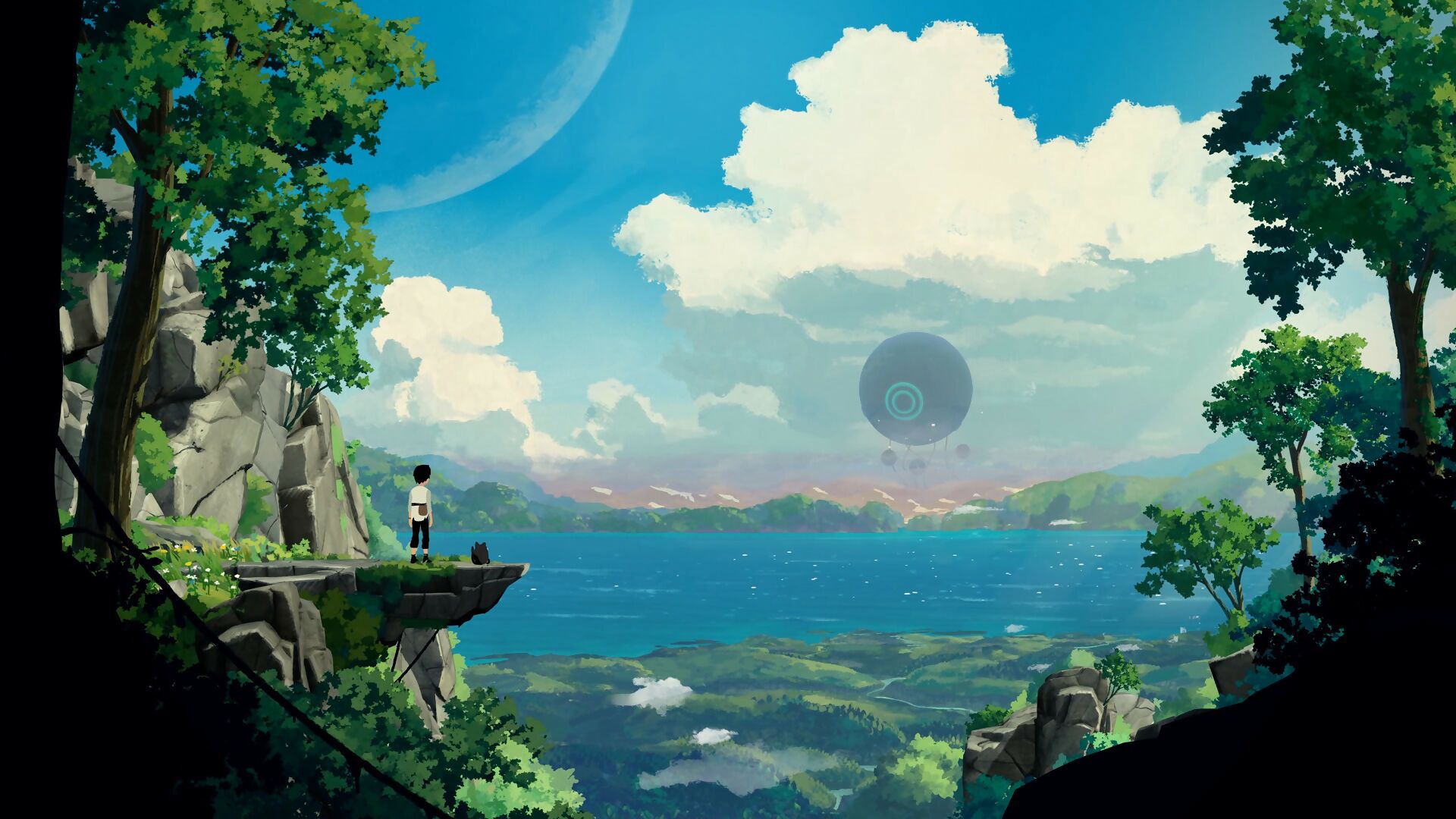
The way Planet of Lana mixes 2D and 3D assets, then pulls the camera back to create a sense of scale, is often breathtaking. Credit: Wishfully Games.
Coincidentally, Planet of Lana’s Wellsian invasion plot echoes last year’s Somerville, another cinematic platformer about a journey across hostile territory. The invaders even communicate with a mix of bellowing sounds and coloured lights akin to Close Encounters of the Third Kind. But where Somerville’s mechanics and ideas never quite coalesced into a satisfying whole, Planet of Lana effortlessly develops its themes in a way that is both emotionally satisfying and surprisingly relevant to contemporary fears about humanity’s relationship with technology.
Furukawa’s sixth sense seemed to tell him that there was something special about Planet of Lana. If there’s any justice, the rest of the gaming public will find themselves similarly drawn to its delicate, minimalist charm.
Highlight:
Planet of Lana’s environmental puzzles provide imaginative twists on the usual block-pushing, lever-pulling challenges typically seen in games of its type. Just when you think you’ve seen everything the game has to offer, it crosses into a new area that poses new conundrums and hazards. Eventually, you’ll be using Lana and Mui to solve some quite complex problems that require thought, coordination, and a decent short-term memory. Fortunately, we had a notepad handy to help with the latter.


